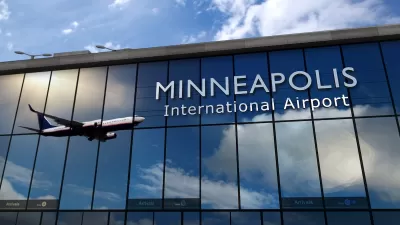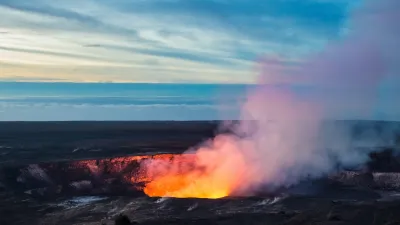The improved facilities are expected to reduce their total energy use by 19 percent.

A terminal expansion plan for the Minneapolis Airport includes geothermal heating and water conservation measures, reports Brian Martucci in Smart Cities Dive. The project, which broke ground in August, will add two new gates, expanded seating, new restrooms, and additional operational areas.
“The improvements in the expanded north end of Terminal 2 are expected to reduce overall energy demand for heating and cooling by 19%, water drawn from the local water utility by 56% and energy demand for interior and exterior lighting by 23% and 62%, respectively, according to an MAC fact sheet shared with Smart Cities Dive sister publication Facilities Dive.”
The airport received a $20 million grant through the Federal Aviation Administration’s Airport Terminals Program to pursue the $263-million project, which will use a groundwater-based heating and cooling system and efficient water fixtures. “The expanded terminal will feature high-efficiency building envelope improvements, including triple-glazed windows installed with bamboo framing, increased wall and roof insulation and airtight exterior detailing.”
FULL STORY: Minneapolis airport unveils plans for geothermal heating, rainwater harvesting in $263M expansion

Study: Maui’s Plan to Convert Vacation Rentals to Long-Term Housing Could Cause Nearly $1 Billion Economic Loss
The plan would reduce visitor accommodation by 25,% resulting in 1,900 jobs lost.

North Texas Transit Leaders Tout Benefits of TOD for Growing Region
At a summit focused on transit-oriented development, policymakers discussed how North Texas’ expanded light rail system can serve as a tool for economic growth.

Using Old Oil and Gas Wells for Green Energy Storage
Penn State researchers have found that repurposing abandoned oil and gas wells for geothermal-assisted compressed-air energy storage can boost efficiency, reduce environmental risks, and support clean energy and job transitions.

Private Donations Propel Early Restoration of Palisades Playground
Los Angeles has secured over $1.3 million in private funding to restore the Pacific Palisades playground months ahead of schedule, creating a modern, accessible space that supports community healing after recent wildfires.

From Blight to Benefit: Early Results From California’s Equitable Cleanup Program
The Equitable Community Revitalization Grant (ECRG) program is reshaping brownfield redevelopment by prioritizing projects in low-income and environmental justice communities, emphasizing equity, transparency, and community benefits.

Planting Relief: Tackling Las Vegas Heat One Tree at a Time
Nevada Plants, a Las Vegas-based nonprofit, is combating the city’s extreme urban heat by giving away trees to residents in underserved neighborhoods, promoting shade, sustainability, and community health.
Urban Design for Planners 1: Software Tools
This six-course series explores essential urban design concepts using open source software and equips planners with the tools they need to participate fully in the urban design process.
Planning for Universal Design
Learn the tools for implementing Universal Design in planning regulations.
Ascent Environmental
Borough of Carlisle
Institute for Housing and Urban Development Studies (IHS)
City of Grandview
Harvard GSD Executive Education
Toledo-Lucas County Plan Commissions
Salt Lake City
NYU Wagner Graduate School of Public Service





























